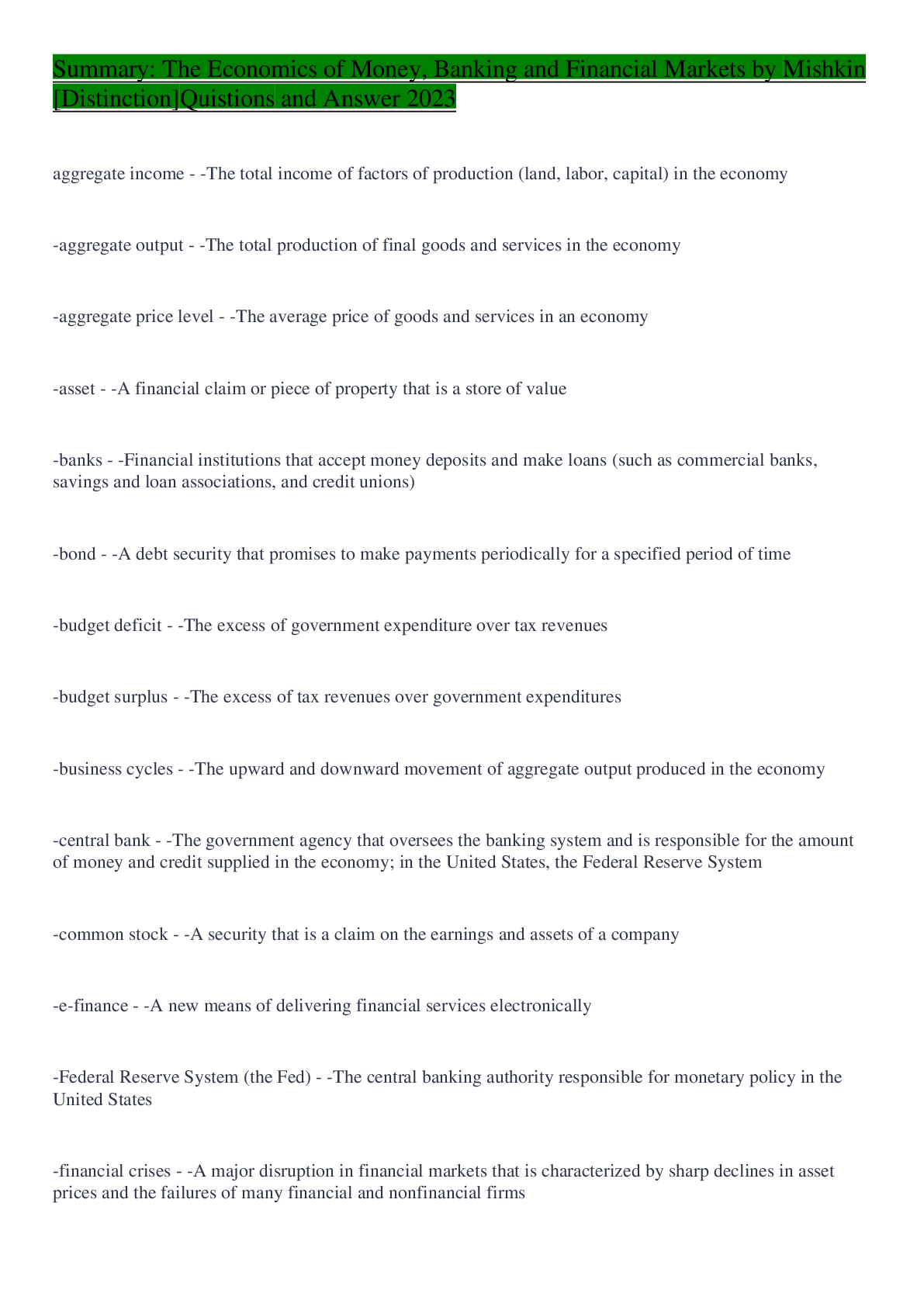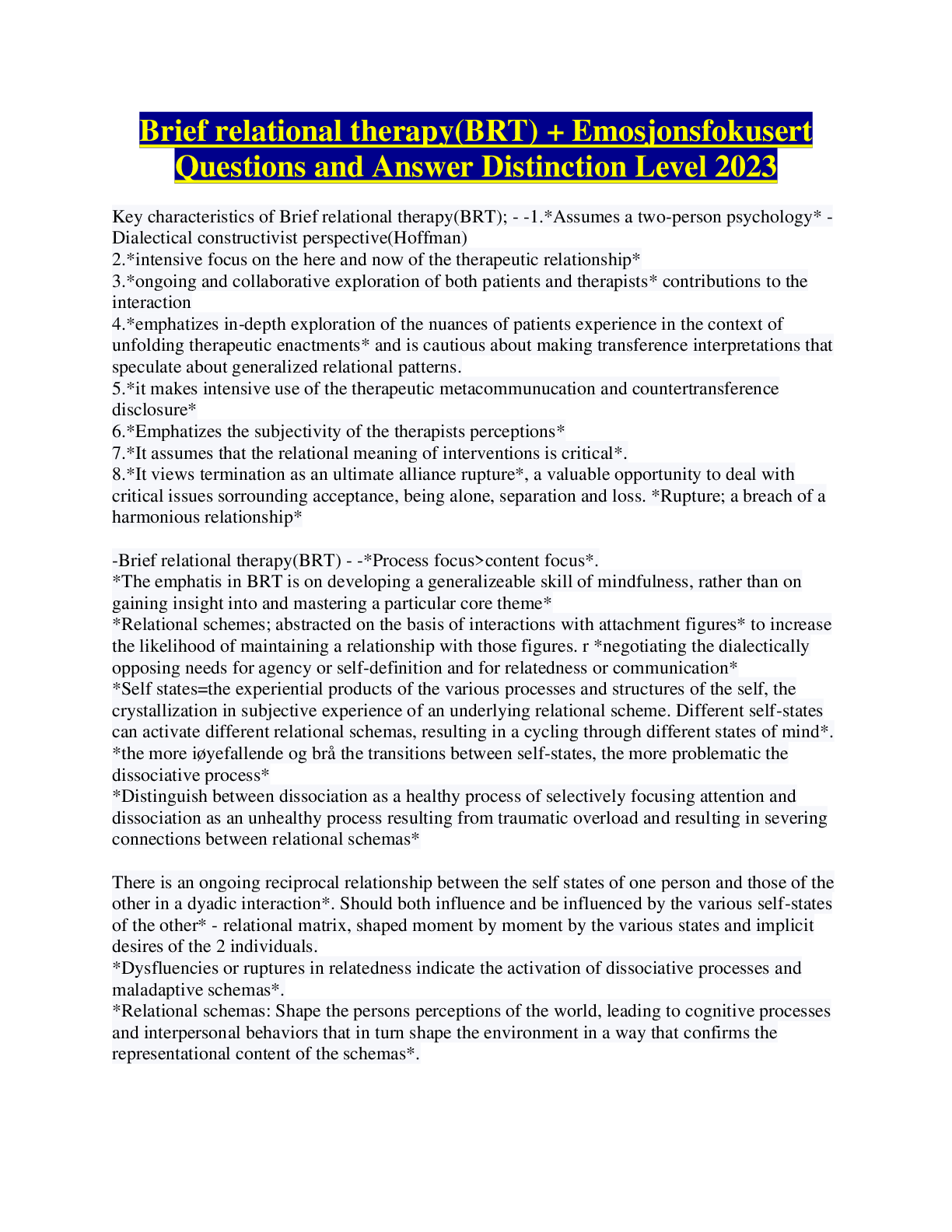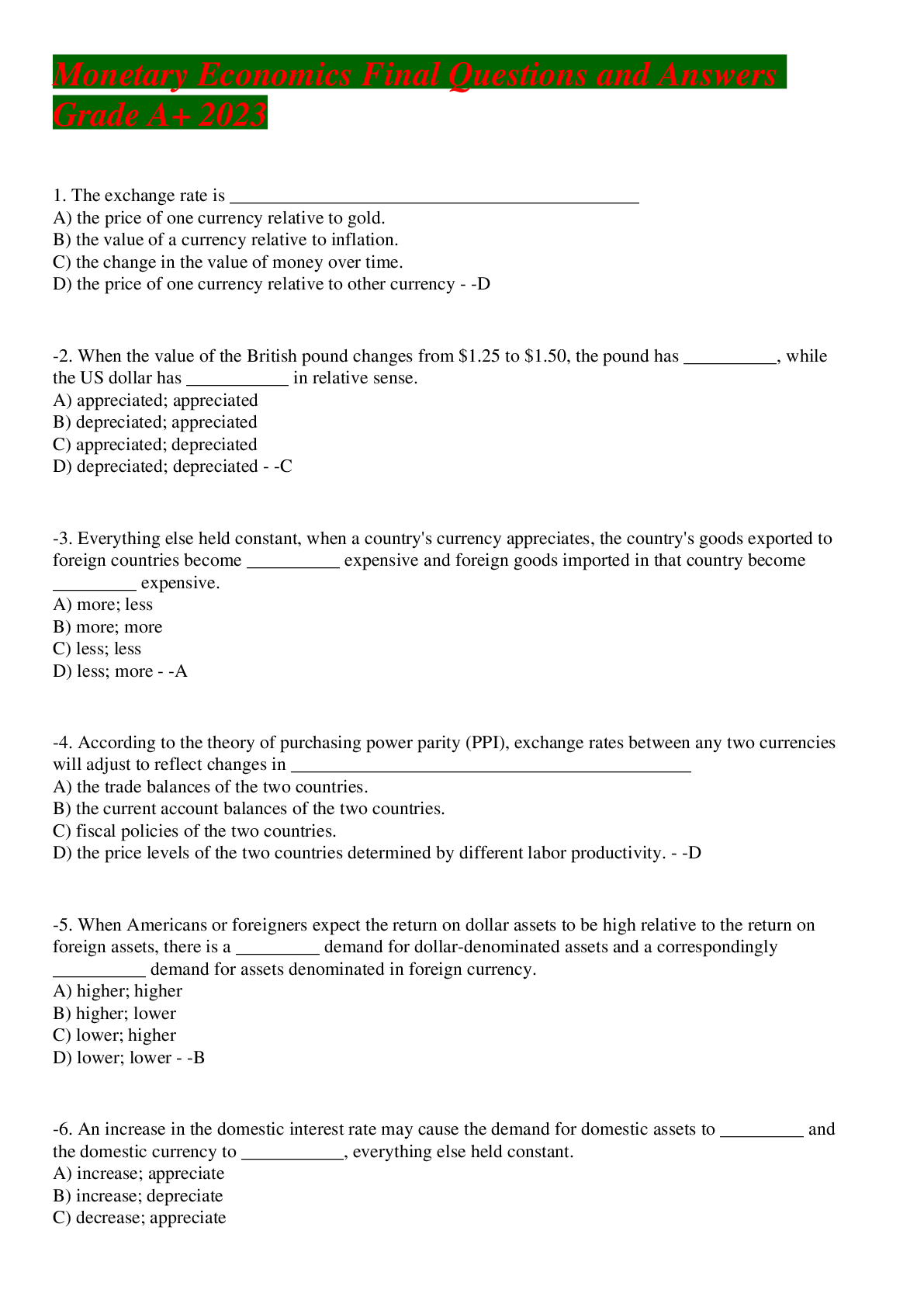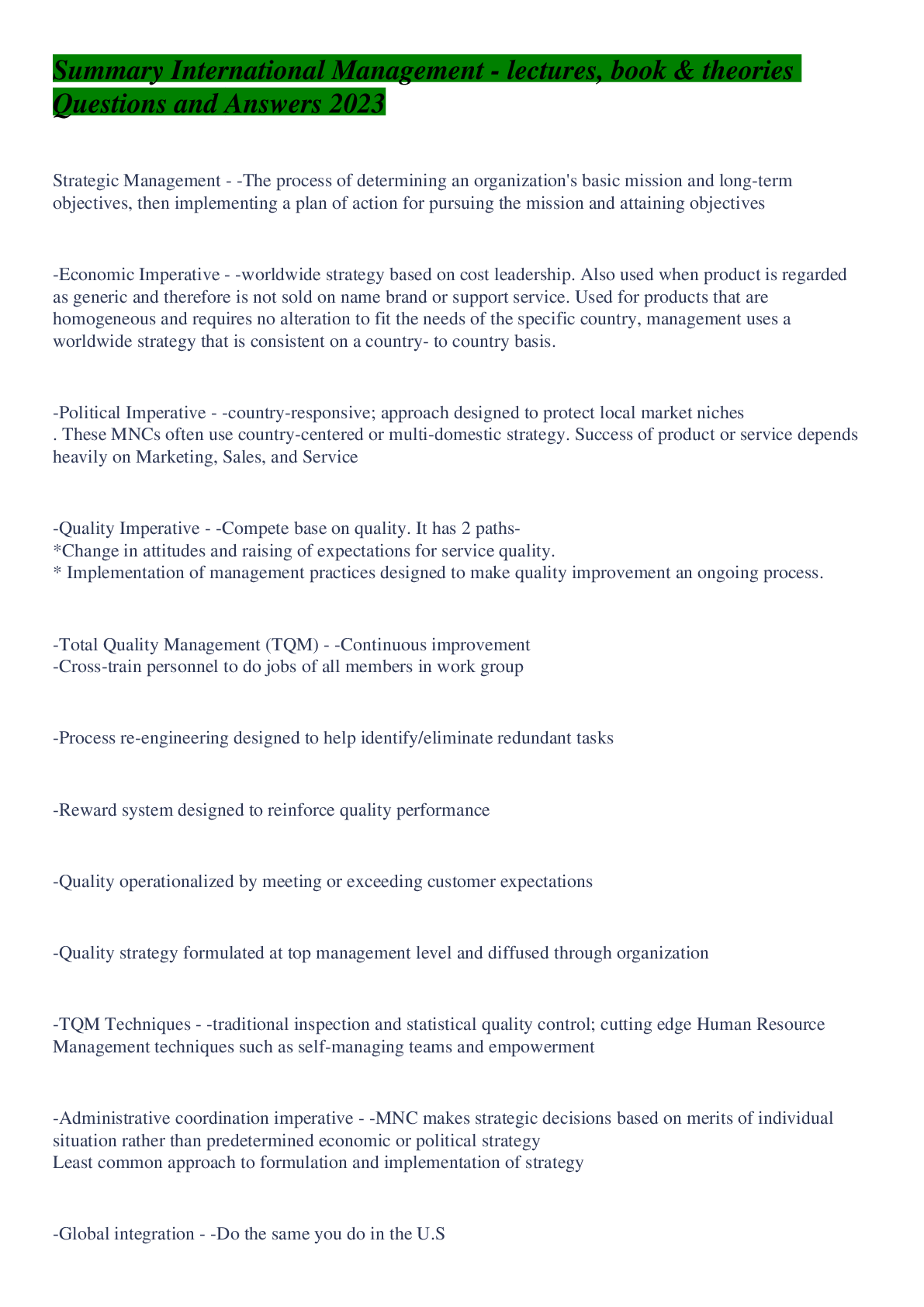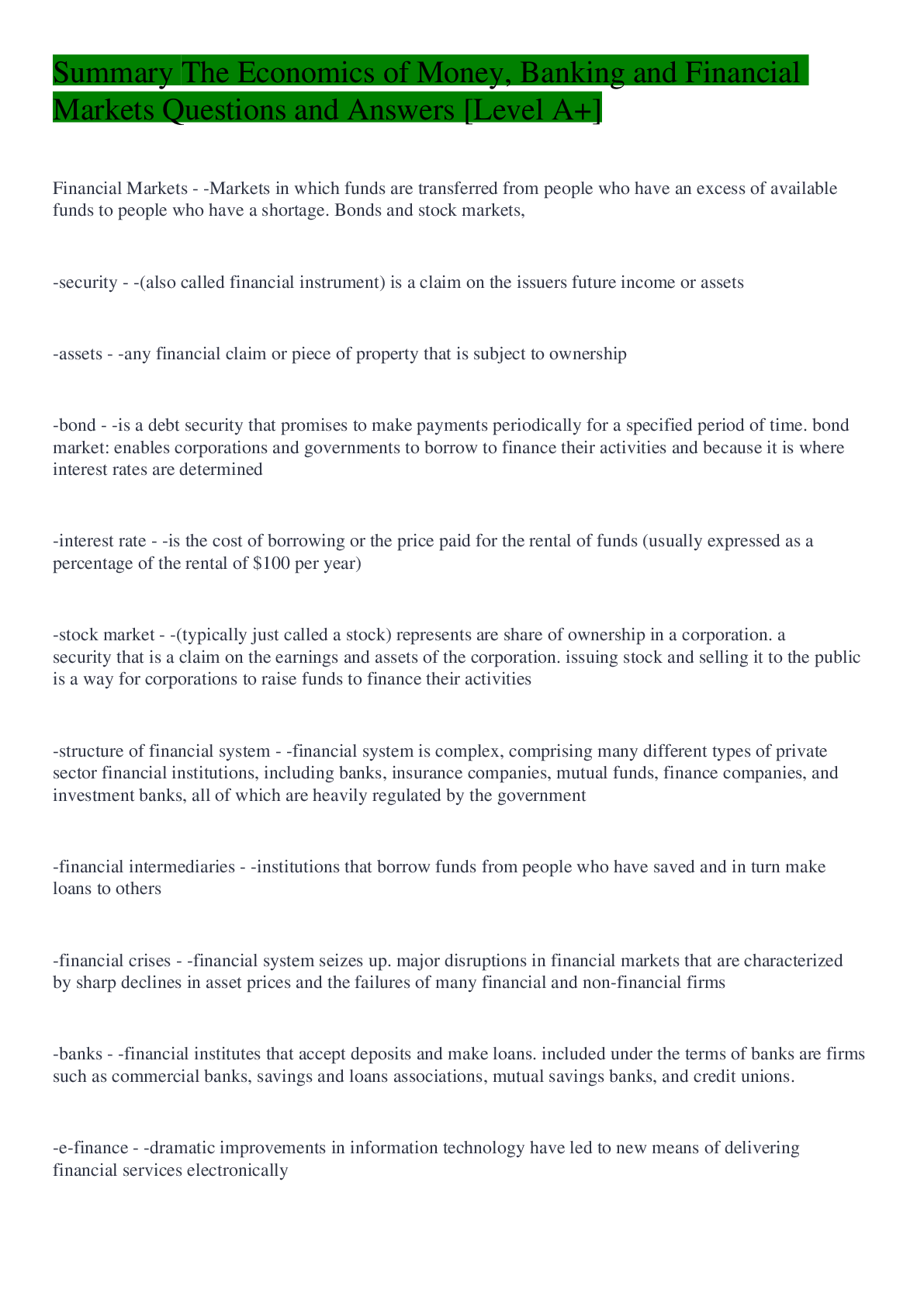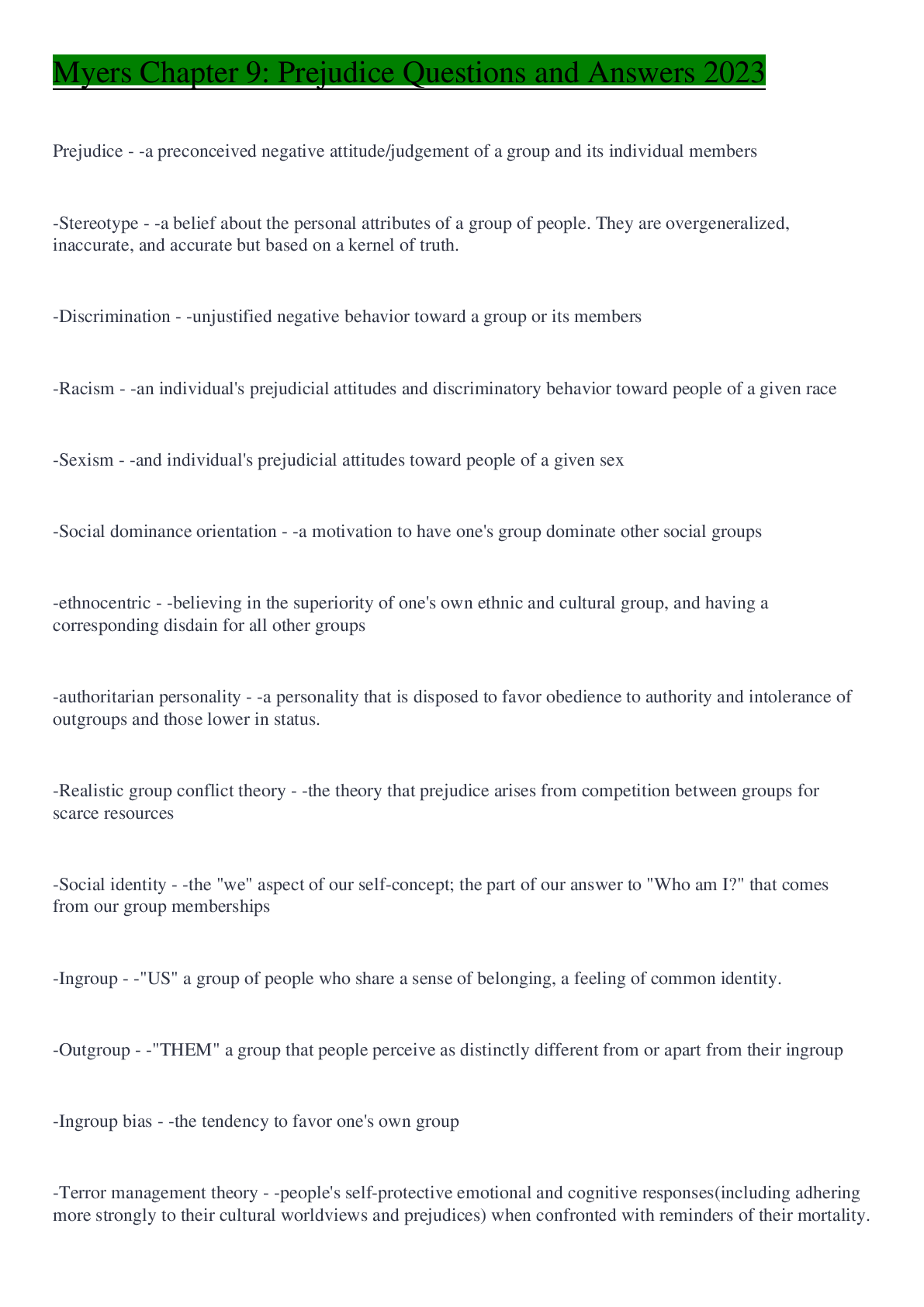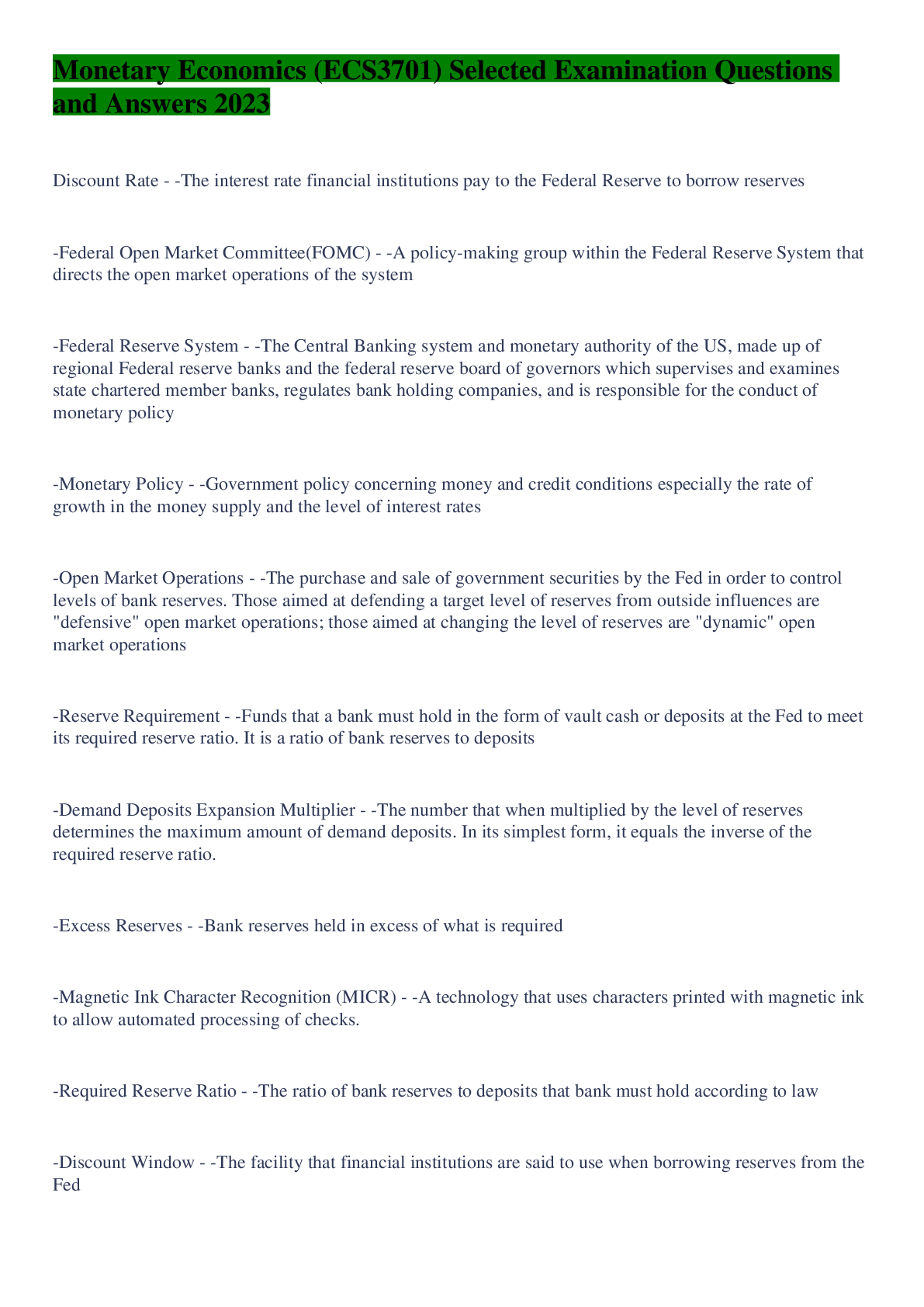International Trade and Money summary Questions and Answers 2023
Document Content and Description Below
1. Outline the main characteristics of the mercantilist view of international trade ; - -• Export as much as possible, import as little as possible • Mercantilism is a zero-sum game = not everyon... e can benefit • Someone's export = else's import • Japan and China often accused of neo-Mercantilism -2. Explain the principle of absolute advantage; - -The ability of a country/individual/ company A to produce certain product cheaper (at lower cost per unit) than country/individual/ company B -3. Describe, using a simple example, the principle of Comparative Advantage; - -The less efficient country (UK) should specialize in and export the good in which it is relatively less inefficient (where its absolute disadvantage is the least) The more efficient country (USA) should specialize in and export the good in which it is relatively more efficient (where its absolute advantage is the greatest) -4. Explain additional factors (additional to comparative advantage) that might support arguments for free trade; - -Companies will become more competitive Motivation to keep up with the competition Make use of surplus of raw materials -5. State the basic principle behind the factor proportions model of international trade - -every country has naturally given advantages • If a country has a lot of capital then its advantage will be in capital intensive goods => export a capital intensive good like trains • If a country is labor abundant, export labor intensive goods such as textiles -6. State briefly the Stolper-Samuelson and Factor Price Equalization theorems - -Stolper samuleson theorem shows that there is a positive relationship between changes in prices of output and the price of the factor used intensively in producing it. It demonstrates that when the relative prices for labor-intensive goods fall, real wages decline in that sector, and the returns to other factors increase, resulting in a redistribution effect. Factor price equalization is wages. When two countries enter a free trade agreement, wages for identical jobs in both countries tend to approach each other. -7. Outline the impact of country similarities and the economies of scale on patterns of international trade in today's world - -Similar countries like the U.S and Canada for example usually trade with each other more than they do with other countries. This is because they take advantage of economies of scale (industries produce more goods with a decreasing cost of production). This happens because similar countries have similar demands. This way they could trade at low cost, enjoy more diversity of goods, and specialize -8. Define the concepts of consumer surplus and producer surplus; [Show More]
Last updated: 2 years ago
Preview 1 out of 12 pages

Buy this document to get the full access instantly
Instant Download Access after purchase
Buy NowInstant download
We Accept:

Reviews( 0 )
$2.50
Can't find what you want? Try our AI powered Search
Document information
Connected school, study & course
About the document
Uploaded On
Mar 20, 2023
Number of pages
12
Written in
Additional information
This document has been written for:
Uploaded
Mar 20, 2023
Downloads
0
Views
66


